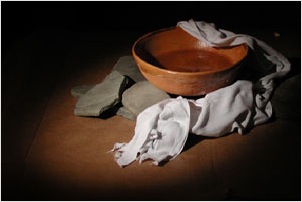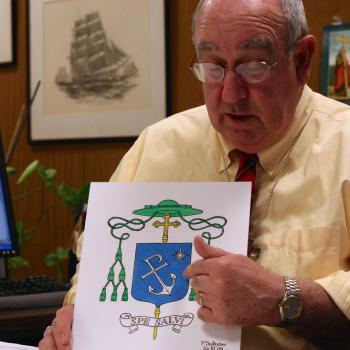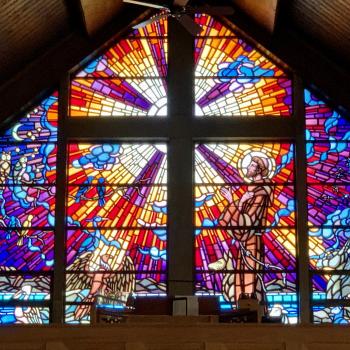The other day, I posted on the symposium on women deacons that was just held at Fordham University — and this morning, Rita Ferrone adds more details, with a pastoral perspective:
Sr. Donna Ciangio injected a contemporary pastoral ministry component and some lively urgency into the proceedings by describing and quoting the thoughts of lay people in her parish and participants in a pilot study group she conducted on the subject of women deacons.
In her parish, for example, the pastoral staff routinely ask new parishioners what, if anything, keeps you from fully embracing the faith? The answer most frequently given is the exclusion of women from leadership and preaching.
When Sr. Donna asked some lay people what they think about the idea of women deacons, they said they thought the sisters who work in pastoral staff positions are already deacons! The study group experience revealed that the more that people came to understand the history, the more they became agitated by the fact that we don’t ordain women as deacons.
Also significant was the fact that no one reported experiencing any confusion between deacons and priests at the parish level. The permanent diaconate is well established; everybody knows who is a deacon and who is a priest. The responses she quoted had a lot of resonance for those in the room, but the report was anecdotal and did not represent a broader study.
One aspect that has been sadly lacking in much of this discussion is the perspective of men on the front lines: ordained permanent deacons now working in ministry. There were no permanent deacons on the papal commission, and none at the symposium at Fordham. The result: people aren’t getting the full story of diaconal ministry.
I hear from deacons often in my work on this blog, and talk with many deacons from around the country in my travels when I give retreats or speak at convocations. I fear that the reality of the lived diaconate in the United States is different from what many may imagine.
To begin with, the diaconate is not exactly a seat of power.
Far from it.
Anyone who thinks being ordained a deacon gives someone power needs to get a reality check. In many parishes, the sacristans, ushers and the parish secretary have more power and influence than the deacon. There are parishes where the pastor won’t even give the deacon a set of keys. Much of this depends on the pastor, but note well: not all priests love deacons. Many don’t even want them around and will do whatever they can to discourage the vocation. Some will even argue (privately, if not publicly) that they don’t think deacons are truly “ordained” and question whether they actually receive a sacrament.
I remember an exchange with a priest on Facebook a couple years back, regarding some obscure liturgical practice, in which he snapped, “And you wonder why so many priests can’t stand deacons.”
If anyone doesn’t know this, you should: There are still a good many places around the country where deacons are marginalized or disregarded. They don’t preach, and many aren’t even allowed by their pastors to perform baptisms or witness weddings. I know of one priest who proudly describes his parish as a “deacon-free zone,” and one who blithely refers to deacons as “potted plants.” (I remember sitting in my chair in the sanctuary during Mass and hearing a priest recount in his homily a conversation he had with me, saying, “I learned the other day that deacons are actually good for something,” which caused a few in the pews to chuckle and more to groan.) I also hear a lot of stories about wives of deacons being excluded from functions, or having their participation minimized. (Recent example: a deanery Christmas party that explicitly excluded the wives of deacons.) Many pastors and priests don’t quite “get” clergy spouses (or, at least, wives).
If women think their experience will be any different, think again.
Still — to borrow a phrase — we persist. We deacons love what we do and love the people of God we serve. And for all the awful stories I hear about priests and pastors, I hear a lot of wonderful ones in which the other clergy in the parish treat deacons as true collaborators and partners in ministry. I’ve been blessed in my parish ministry to have pastors who have been nothing but supportive and appreciative, and to have a bishop in my diocese who is, in every sense, “deacon-friendly.”
But I’m well aware that’s not the story for everyone.
The fact is: you don’t become a deacon to have power or influence. You do it to become a slave, and to love as Christ loved, by getting down on your knees and washing feet, and then rising to open your arms on a cross. It is about sacrificial love — loving those who feel unloved, feeding those who hunger, clothing those who are naked, and proclaiming Good News to a world often on the brink of tears.
Those who are debating the issue of women deacons need to hear the stories of deacons who have been doing all this for a while. If they already have an idea of who deacons are and what they do—and what the lived experience in parish life is actually like—they might be surprised.













